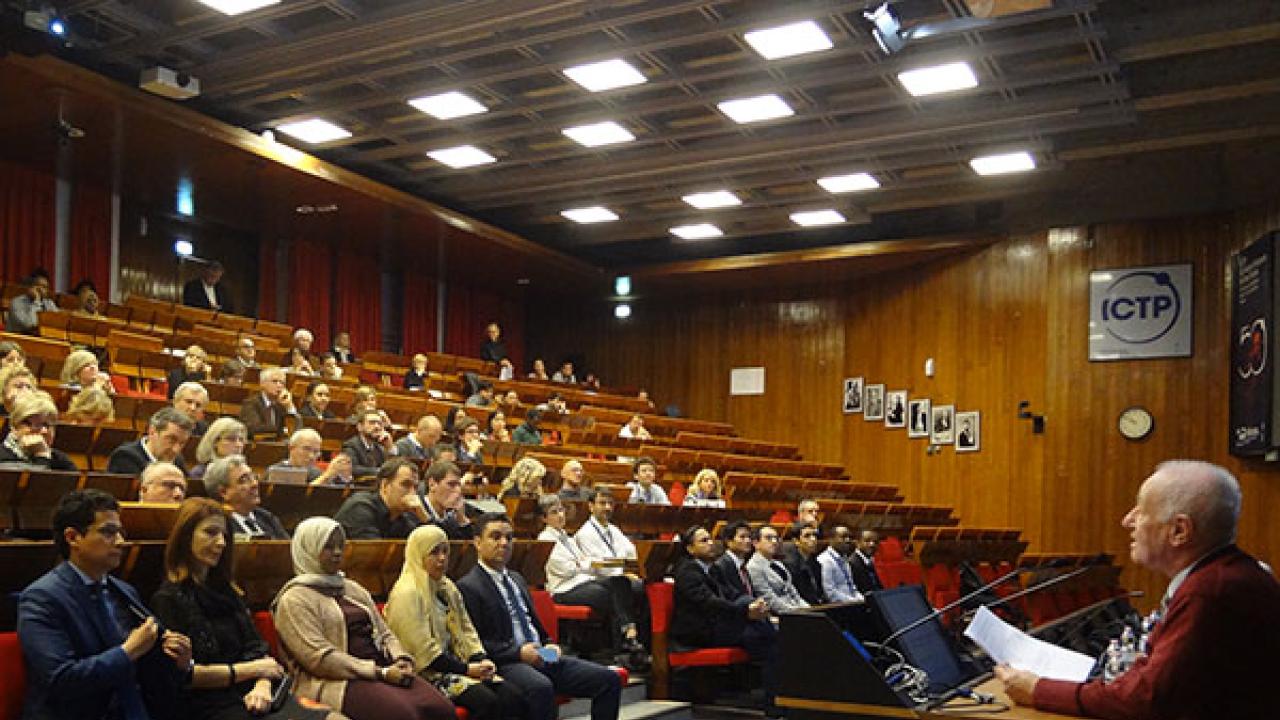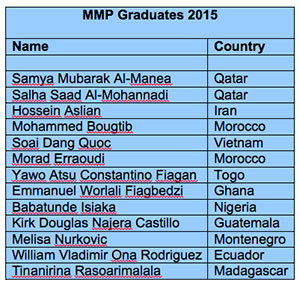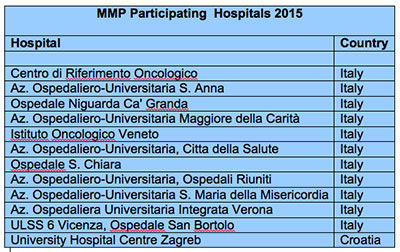
Thirteen students from 11 developing countries were the first to receive a Master's in Medical Physics (MMP) degree through a joint ICTP-University of Trieste programme that began two years ago. A ceremony honoring their achievements was held on Friday 11 December in the ICTP Budinich Lecture Hall. Photos from the ceremony are available here.
The two-year MMP programme, which is supported by the International Atomic Energy Agency (IAEA) and the World Academy of Sciences (TWAS), addresses a dire shortage of medical physicists in the developing world. It is designed to provide graduates of physics or related fields (mainly from developing countries) with postgraduate theoretical and clinical training so that they may be recognized as clinical medical physicists in their home countries. Typically, medical physicists work in hospitals providing services for medical imaging, nuclear medicine and radiotherapy.
The clinical training aspect of the MMP--where the students gain year-long, hands-on experience in participating hospitals--was particularly appreciated by the graduates. "The most important point for me is that it has one full year of training," says MMP graduate Hossein Aslian from Iran, adding, "I already had a master but it was purely theoretical, so the best chance to shift from theoretical to practice was to participate in ICTP's programme."
 |
Babatunde Isiaka, an MMP graduate from Nigeria, concurs. "With the ICTP programme, you can go directly into clinical training without any problem. This is different from the situation in many countries, because when you finish your master you need to look for places to do clinical training, which is somewhat difficult to get," he says.
Many of the graduates come from countries where medical physicists are scarce. MMP graduate Tinanirina Rasoarimalala will become only the third such specialist in her home country of Madagascar.
During the graduation ceremony, four graduates were cited for their high-level achievement in the programme and were awarded the Medical Physics Prize; they are:
- Hossein Aslian (Iran)
- Kirk Douglas Najera Castillo (Guatemala)
- William Vladimir Ona (Ecuador)
- Melisa Nurkovic (Montenegro)
Congratulating the new graduates, University of Trieste Rector Maurizio Fermeglia highlighted two key aspects of the MMP program: its multidisciplinary nature and its stress on collaboration. "Humanity's big problems are multidisciplinary in nature, for example climate change or food shortages," he says, adding ,"You are an example of how basic science can solve problems."
ICTP scientist Luciano Bertocchi, who has coordinated the Centre's medical physics activities for years and was the driving force behind the creation of the MMP, included in his opening remarks at the ceremony a special thanks to the IAEA. "Without the Agency's assistance, the MMP would not be able to continue," he says. He acknowledged the Agency's increased financial support of the MMP, saying it is "A clear indication of the validity of our program." MMP graduate Babatunde Isiaka of Nigeria has seen the IAEA's work first-hand in his country, and says it has made a significant impact. "With the help of the IAEA, especially in helping medical physics to develop, I think in the years to come Nigeria will be great in medical physics," he says.
 Isiaka also gives due credit to ICTP for its support of medical physics in developing countries. "If you tell anyone that you have trained at ICTP, with its great reputation for training and its experts, they will not doubt your standard, because it has that reputation," he explains. He advises anyone who wants to study medical physics to study at ICTP, because "This is where the science begins, you need to come and see new developments, new techniques, new research and meet people of different calibers."
Isiaka also gives due credit to ICTP for its support of medical physics in developing countries. "If you tell anyone that you have trained at ICTP, with its great reputation for training and its experts, they will not doubt your standard, because it has that reputation," he explains. He advises anyone who wants to study medical physics to study at ICTP, because "This is where the science begins, you need to come and see new developments, new techniques, new research and meet people of different calibers."
Related links:
- Master in Medical Physics website
- Medical Physics Clinical Training at Trieste Hospital (photos on Flikr)













